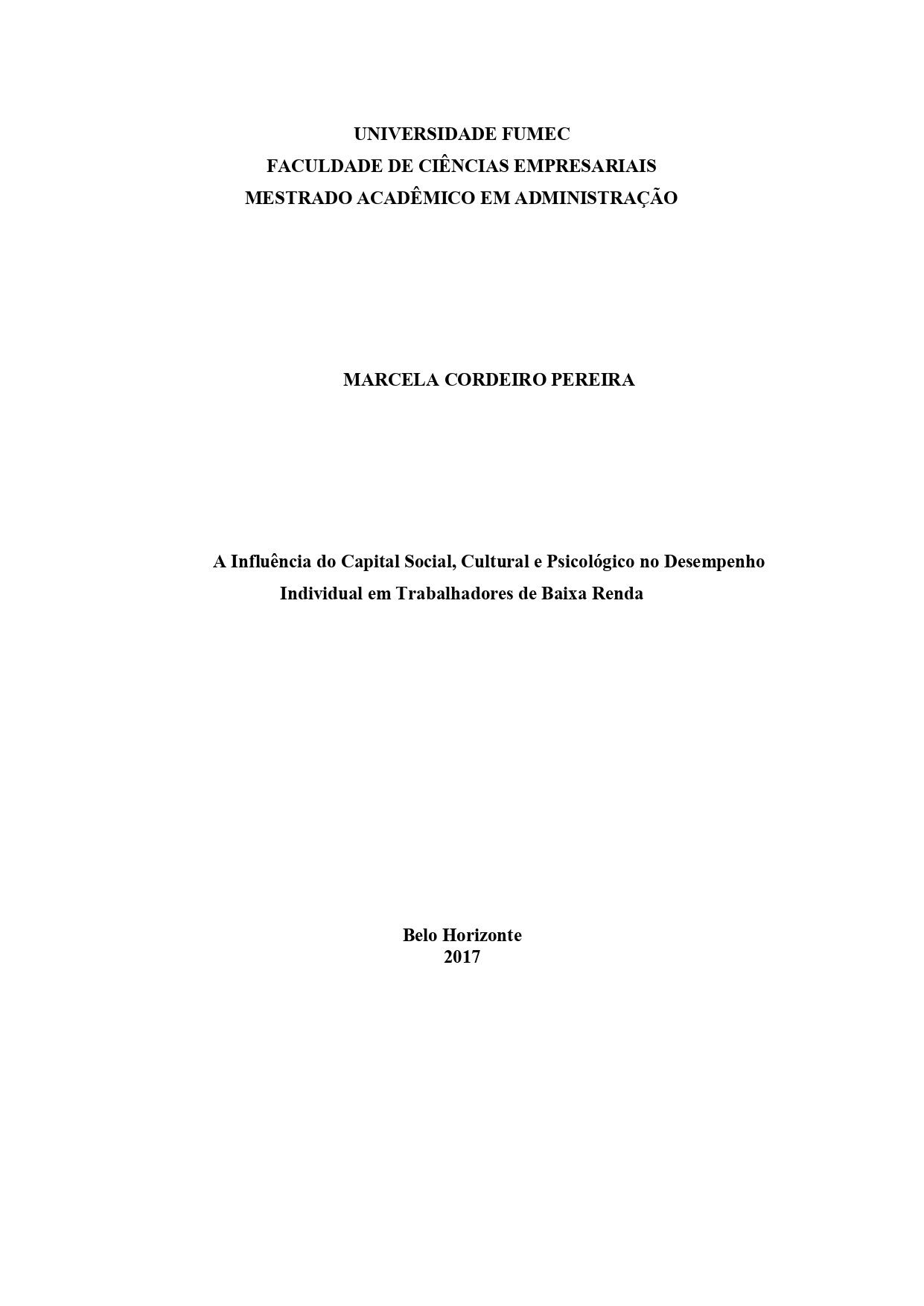A influência do capital social, cultural e psicológico no desempenho individual em trabalhadores de baixa renda

Visualizar/
Data
2017Autor
Pereira, Marcela Cordeiro
xmlui.mirage2.itemSummaryView.MetaData
Mostrar registro completoResumo
Essa pesquisa tem como objetivo geral explicar e descrever a influência do capital cultural, social e psicológico no desempenho individual do trabalhador de baixa renda. A pesquisa é de abordagem quantitativa, natureza descritiva explicativa, amostra não probabilística e tratamento de dados através da análise estatística multivariada. O questionário em escala tipo Likert de 10 pontos foi composto por 48 questões sobre os construtos, além de 4 questões de caracterização dos respondentes, totalizando 52 questões. Foram aplicados 329 questionários presencialmente, sendo os 329 respondentes válidos. A aplicação do questionário foi feita pela disponibilidade do entrevistado e conveniência do entrevistador. Os resultados obtidos indicam que houve influência significativa (valor- p<0,050) e positiva do Capital Social, do Capital Cultural e do Capital Psicológico sobre o Desempenho Individual. Dessa forma, quanto maiores os capitais, melhor tende a ser o desempenho individual. Cabe ressaltar também que o Capital Psicológico apresentou um maior coeficiente, indicando que essa relação foi mais forte que as demais, enquanto que o Capital Cultural apresentou um menor coeficiente. This research aims to explain and describe the influence of cultural, social and psychological capital on the individual performance of low-income workers. The research is a quantitative approach, explanatory descriptive nature, non-probabilistic sample and data treatment through multivariate statistical analysis. The 10-point Likert-type questionnaire was composed of 48 questions about the constructs, in addition to 4 questions of characterization of the respondents, totaling 52 questions. 329 questionnaires were applied in person, 329 respondents being valid. The application of the questionnaire was made by the availability of the interviewee and the convenience of the interviewer. The results indicate that there was a significant (p-value <0.050) and positive influence of Social Capital, Cultural Capital and Psychological Capital on Individual Performance. In this way, the higher the capital, the better the individual performance tends to be. It should also be noted that the Psychological Capital presented a higher coefficient, indicating that this relation was stronger than the others, while Cultural Capital presented a lower coefficient.
